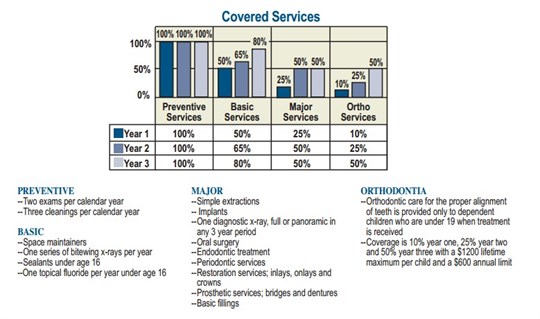Get A Dental Insurance Quote
- COMPARE PLANS
-
VIEW QUOTES NOW!
How do no waiting dental insurance plans work?
admin | March 25, 2015
Many dental insurance plans now have "waiting periods", which is the time required before certain benefits may be available to a consumer. Many people think that all services are covered as soon as their plan goes into effect. Waiting periods are established by the dental insurance companies to protect themselves from individuals who only want to use the coverage when faced with a large dental expense, then cancel the policy shortly thereafter.
Here at the dental insurance shop we have an alternative method, instead of having dental insurance plans with waiting periods, we offer many plans with NO WAITING PERIODS. Instead of having waiting periods, these plans have a "Tiered" method for determining the amount of coverage a certain procedure has. For example if you need to get some major dental work done - things like root canals, crowns, implants, extractions, or dentures - but you don't want to wait 12 months for your dental insurance coverage to start you can look at purchasing a dental insurance plan with no waiting periods.
How do these "Tiered" dental insurance plans work?
The tiered approach to doing dental insurance is a way the dental insurance companies have tried to eliminate waiting periods for their plans. The way it works is the first year you are on a plan you may only get 25 - 30% coverage for major services (but it's better than 0% right?). The second year it might jump to 40 - 50% coverage, and the third year it can go as high as 60% coverage. See the chart below for an example.

This way of doing dental insurance is beneficial for both the policy holder and the dental insurance company. It protects the dental insurance company from individuals abusing the policy by purchasing a plan, then getting a lot of dental work done, then cancelling it the next month. It also protects the consumer because they don't have to wait a 12 - 18 months to get their dental work done, and the longer they are on the plan the better their coverage gets.

